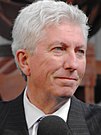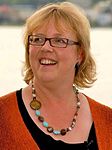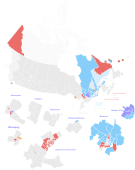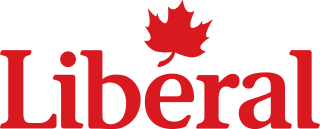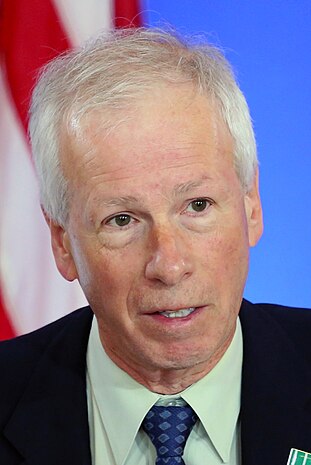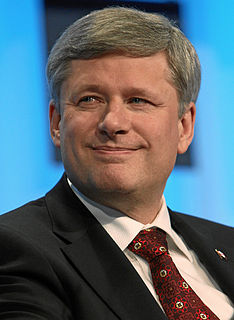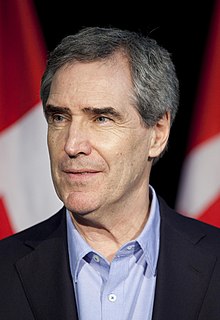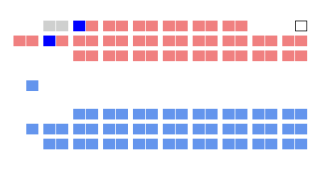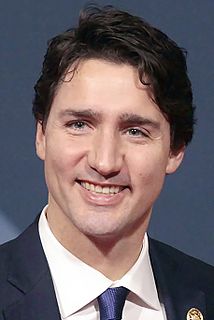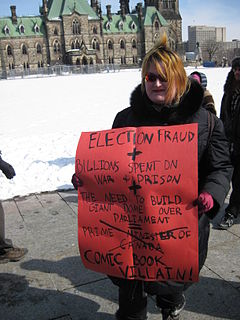| |||||||||||||||||||||||||||||||||||||||||||||||||||||||||||||||||||||||||||||||||||||||||
308 seats in the House of Commons of Canada 155 seats needed for a majority | |||||||||||||||||||||||||||||||||||||||||||||||||||||||||||||||||||||||||||||||||||||||||
|---|---|---|---|---|---|---|---|---|---|---|---|---|---|---|---|---|---|---|---|---|---|---|---|---|---|---|---|---|---|---|---|---|---|---|---|---|---|---|---|---|---|---|---|---|---|---|---|---|---|---|---|---|---|---|---|---|---|---|---|---|---|---|---|---|---|---|---|---|---|---|---|---|---|---|---|---|---|---|---|---|---|---|---|---|---|---|---|---|---|
| Opinion polls | |||||||||||||||||||||||||||||||||||||||||||||||||||||||||||||||||||||||||||||||||||||||||
| Turnout | 61.1% ( | ||||||||||||||||||||||||||||||||||||||||||||||||||||||||||||||||||||||||||||||||||||||||
| |||||||||||||||||||||||||||||||||||||||||||||||||||||||||||||||||||||||||||||||||||||||||
 Popular vote by province, with graphs indicating the number of seats won. As this is an FPTP election, seat totals are not determined by popular vote by province but instead via results by each riding. | |||||||||||||||||||||||||||||||||||||||||||||||||||||||||||||||||||||||||||||||||||||||||
| |||||||||||||||||||||||||||||||||||||||||||||||||||||||||||||||||||||||||||||||||||||||||
The 2011 Canadian federal election (formally the 41st Canadian general election) was held on Monday, May 2, 2011, to elect members to the House of Commons of Canada of the 41st Canadian Parliament.

The House of Commons of Canada is a component of the Parliament of Canada, along with the Sovereign and the Senate. The House of Commons currently meets in a temporary Commons chamber in the West Block of the parliament buildings on Parliament Hill in Ottawa, while the Centre Block, which houses the traditional Commons chamber, undergoes a ten-year renovation.
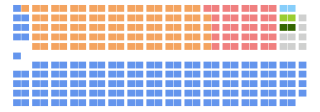
The 41st Canadian Parliament was in session from June 2, 2011 to August 2, 2015, with the membership of its House of Commons having been determined by the results of the 2011 federal election held on May 2, 2011. Parliament convened on June 2, 2011, with the election of Andrew Scheer as Speaker, followed the next day with the Speech from the Throne. There were two sessions in this Parliament. On August 2, 2015, Prime Minister Stephen Harper asked the Governor General to dissolve Parliament and issue the writ of election, leading to an 11-week election campaign period for the 2015 federal election.
Contents
- Background
- Campaign slogans
- Results
- Summary analysis
- Detailed analysis
- Targeted constituencies
- Results by province
- Post-election
- Overview of results
- Recounts
- Opposition party leadership changes
- Controversies
- Timeline
- Issues
- Election campaign
- Controversies and gaffes
- Leaders' debates
- Small parties public forum
- Opinion polls
- New Democratic Party surge
- Election spending
- Endorsements
- Candidates by party
- See also
- Notes
- References
- Further reading
- External links
The writs of election for the 2011 election were issued by Governor General David Johnston on March 26. Prime Minister Stephen Harper advised the Governor General to dissolve parliament after the House of Commons passed a motion of non-confidence against the government, finding it to be in contempt of parliament. A few days before, the three opposition parties had rejected the minority government's proposed budget. [1]
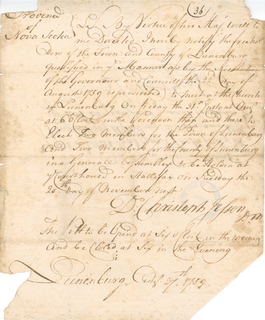
A writ of election is a writ issued ordering the holding of an election. In Commonwealth countries writs are the usual mechanism by which general elections are called and are issued by the head of state or their representative. In the United States, it is more commonly used to call a special election for a political office.

The Governor General of Canada is the federal viceregal representative of the Canadian monarch, currently Queen Elizabeth II. The person of the sovereign is shared equally both with the 15 other Commonwealth realms and the 10 provinces of Canada, but resides predominantly in her oldest and most populous realm, the United Kingdom. The Queen, on the advice of her Canadian prime minister, appoints a governor general to carry out most of her constitutional and ceremonial duties. The commission is for an unfixed period of time—known as serving at Her Majesty's pleasure—though five years is the normal convention. Beginning in 1959, it has also been traditional to rotate between anglophone and francophone incumbents—although many recent governors general have been bilingual. Once in office, the governor general maintains direct contact with the Queen, wherever she may be at the time.

David Lloyd Johnston is a Canadian academic, author, and statesman who served as Governor General of Canada from 2010 to 2017, the 28th since Canadian Confederation.
The Conservative Party remained in power, increasing its seat count from a minority to a majority government. The Liberal Party won the fewest seats in its history, and party leader Michael Ignatieff was defeated in his riding. The Bloc Québécois lost official party status for the first time since contesting general elections in 1993. Party leader Gilles Duceppe was defeated in his riding and subsequently resigned as leader. The New Democratic Party won the largest number of seats in its history, enabling it to form the Official Opposition for the first time. The Green Party elected its first member to the House of Commons with its leader, Elizabeth May, becoming MP for Saanich—Gulf Islands.

The Conservative Party of Canada, colloquially known as the Tories, is a federal political party in Canada. It was formed in 2003 from the multiple right-wing parties which had existed in Canada for over a century, historically grouped into two camps, "Red Tories" and "Blue Tories". The party sits at the centre-right to the right-wing of the Canadian political spectrum, with the Liberal Party of Canada positioned to the center-left. Like their federal Liberal rivals, the party is defined as a "big tent", welcoming a broad variety of members. The party's leader is Andrew Scheer, who serves as Leader of the Official Opposition.
A minority government, or minority cabinet or minority parliament, is a cabinet formed in a parliamentary system when a political party or coalition of parties does not have a majority of overall seats in the parliament. It is sworn into office, with or without the formal support of other parties, to enable a government to be formed. Under such a government, legislation can only be passed with the support of enough other members of the legislature to provide a majority, encouraging multi-partisanship. In bicameral parliaments, the term relates to the situation in chamber whose confidence is considered most crucial to the continuance in office of the government.
A majority government refers to one or multiple governing parties that hold an absolute majority of seats in legislature. This is as opposed to a minority government, where the largest party in a legislature only has a plurality of seats.



